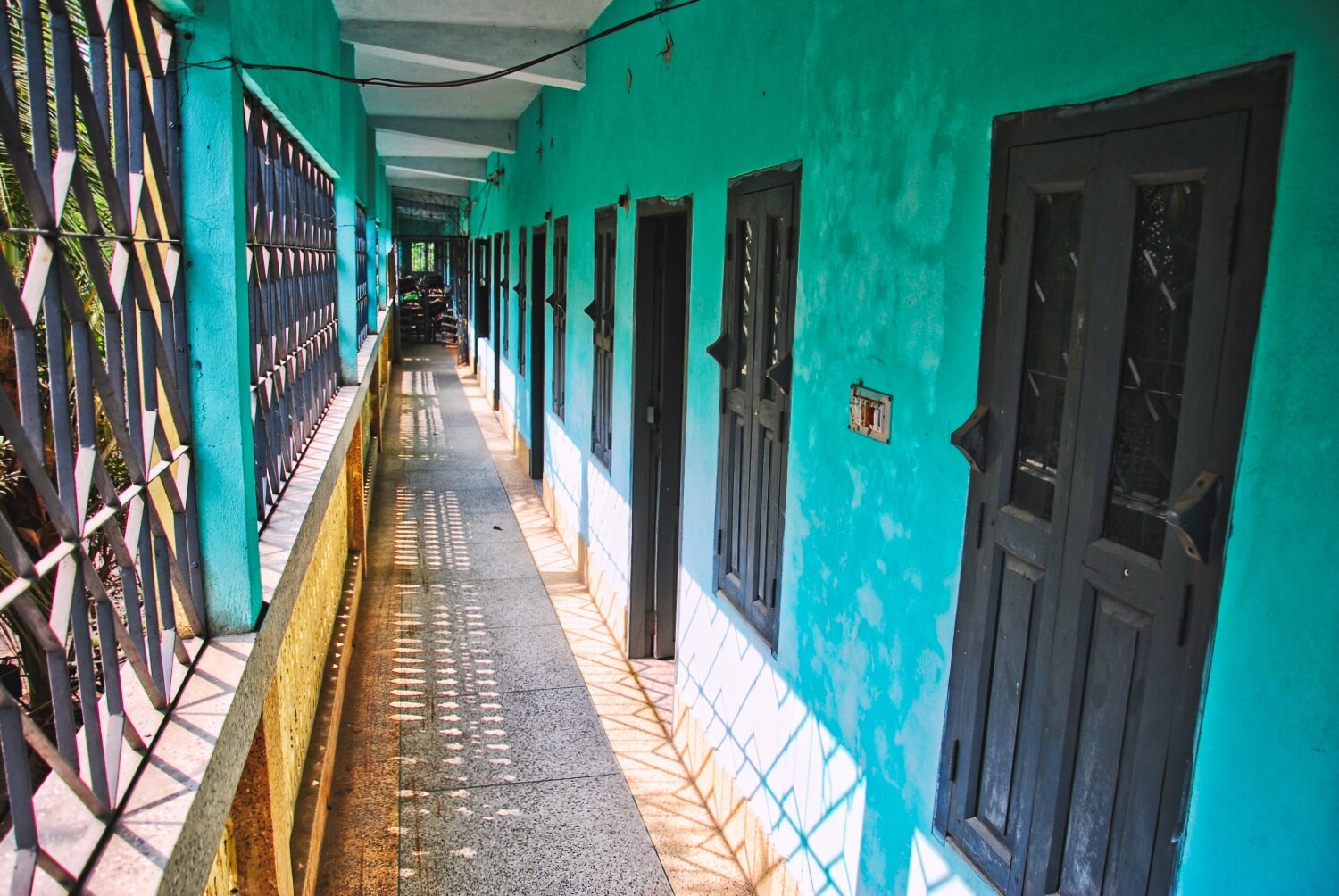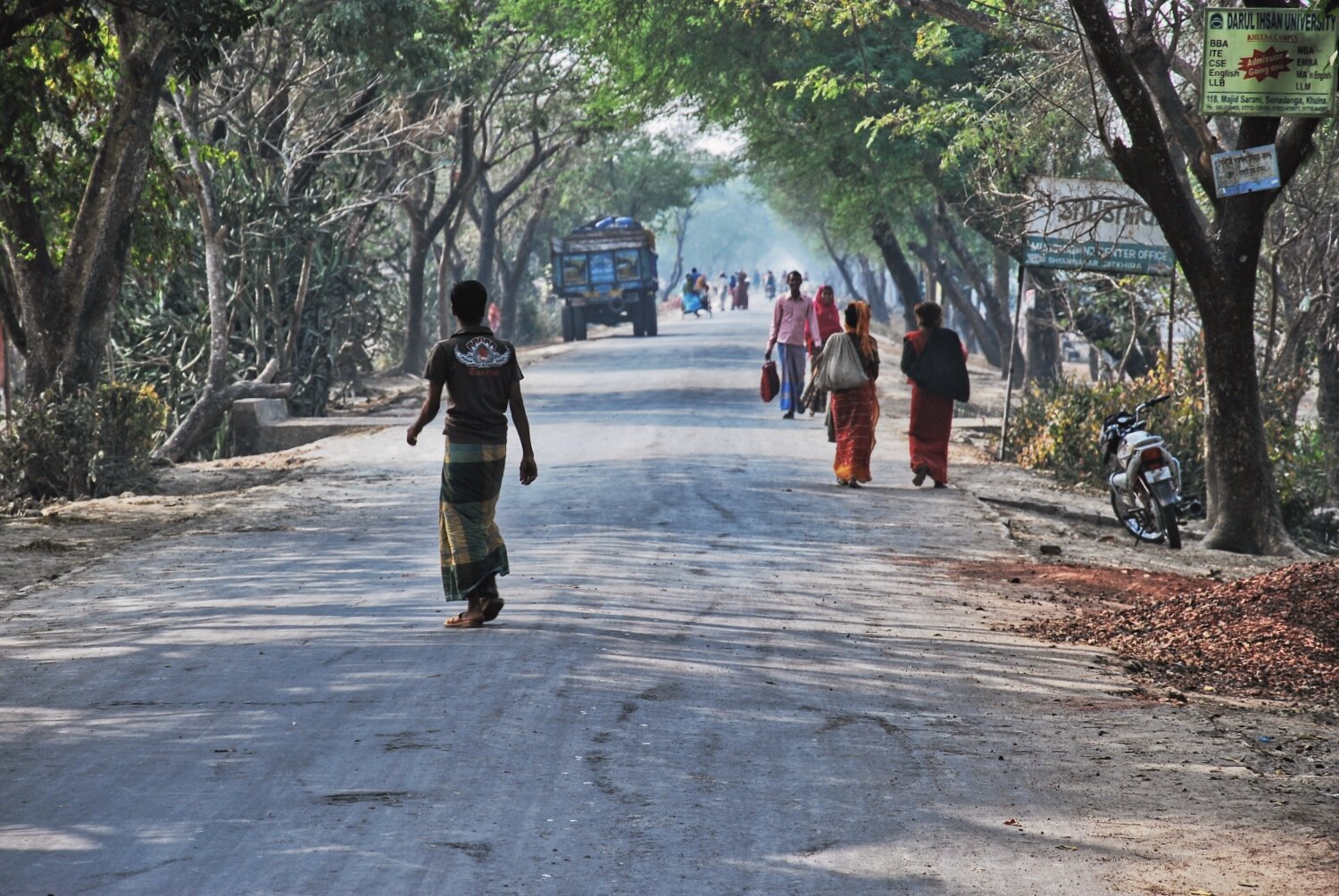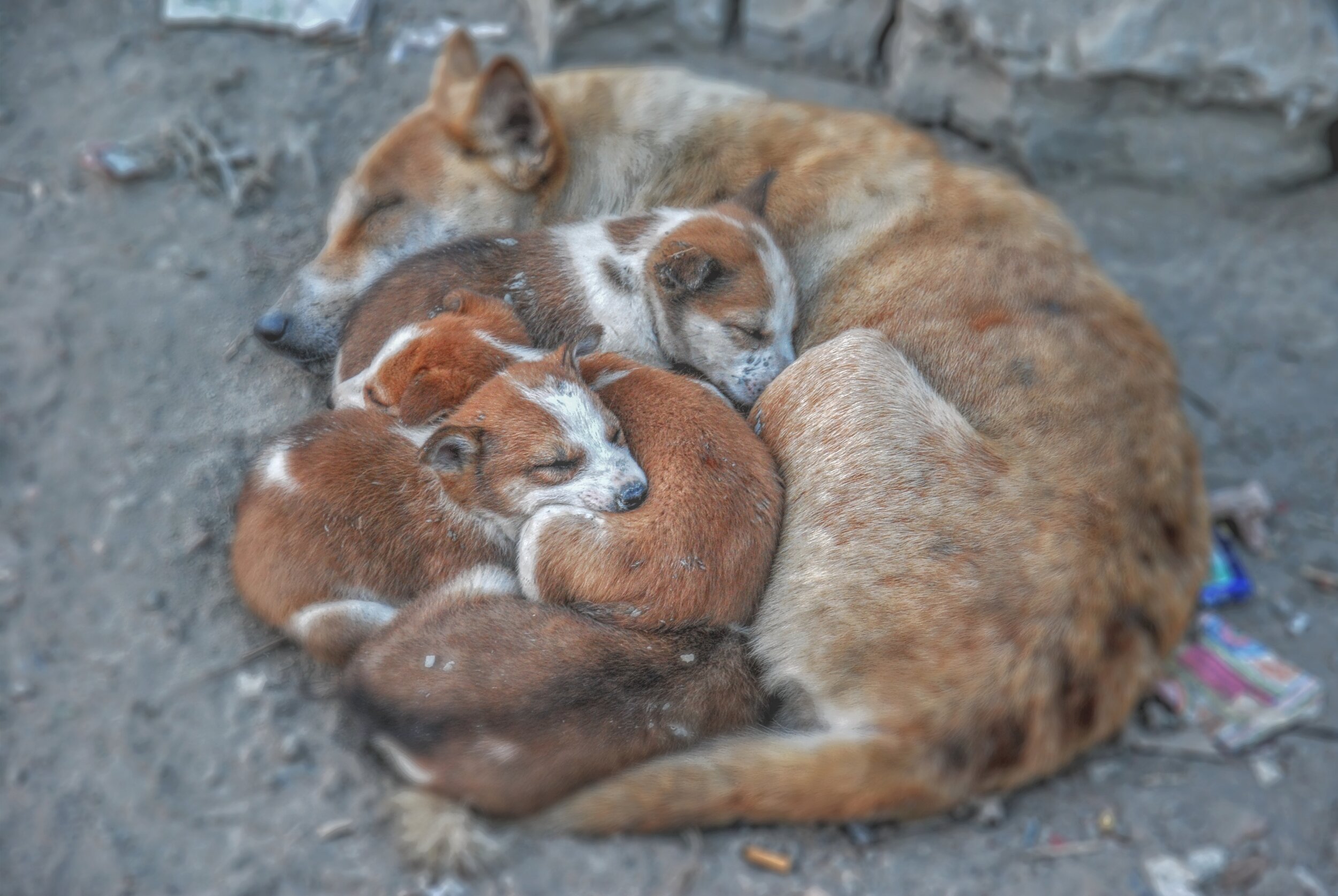109 - Munshigonj (Khulna Division, Bangladesh)
MUNSHIGONJ. 2:30 PM. I MADE IT. SUPER. Would I find a place to stay? Bus consensus (i.e. strangers in transit) via stilted English was “yay.” Soon after deplaning, I wasn’t so sure. I inquired about a hotel and was directed to a yellow building a few hundred yards down the road. It didn’t look like a hotel. I asked pedestrians. Confusion reigned. Hotel? Not hotel? Some thought yes, others no. Um, ‘kay. Seems pretty straightforward, no? Either it is, or it isn’t. Or it was, and now it isn’t? Never was? Never isn’t? Sometimes it is. Sometimes it isn’t. Almond Joys have nuts. Mounds don’t.
Turns out, it wasn’t a hotel. It was a guesthouse. Duh. The “guesthouse” was run by an NGO (Shushilan) spearheading an effort to promote organic shrimp farming. All that confusion over “close but no cigarette (or cigar?)” not quite synonymous words. I’m promiscuous with my definitions, but non-native speakers don’t see it that way… and they’d be right. Not a hotel, asshole. A boarding house. Nothing like translational hijinks to break up an afternoon.
This made me think. Someday, in the not-too-distant future, harmless miscommunications will disappear. Universal translation apps will be the norm, translating in real time with voice rendering and all. Efficient? Yes, sir. Still, there’s something about wandering a city or small town with my head up my confused ass while trying to navigate a foreign culture that adds spice and variety to the experience. I can’t deny the pros may well outweigh the cons, especially in a pinch, but I will mourn the loss of bemusing ambiguity.
So, guesthouse it was. First hurdle surmounted. After agreeing on a label, I had to discuss availability. More confusion. A man called a relevant somebody. I was led to believe (or was I?) a decision-maker would turn up, then invited to secure my pack in an office for safekeeping and provided a chair outside. I sat. I waited. I waited some more. While I waited, locals hovered, giving me the once over a hundred times. A child no older than nine tooled around on his bike out front wearing a sweater reading “I’m not just having hot flashes, I’m having power surges” adorned with a large pink lightning bolt. He didn’t look menopausal, but I’m no doctor.
I also met a Bengali photojournalist staying on premises who confirmed the establishment’s “guesthouse” stature. Panos shared fascinating tidbits about the notorious tiger population. He himself was too afraid to venture into the nearby forest, assuring me he was normally an intrepid fellow. According to reports, Shere Khan and crew weren’t averse to crossing the river and burgling village homes. One recent incident involved a breaking and entering and subsequent killing of goats. I erroneously believed attacks were confined to small groups or solo forest wanderers, but Panos relayed a story about a tiger attack on an individual accompanied by thirteen others. He’d spoken to many survivors, including a fellow who escaped death by yanking on the tiger’s tongue. I told him I’d keep that defense technique in mind. Hearing all that made me question the viability of convincing a local boatman to shepherd me inside the mangrove of destruction.
An hour and a half later, Mr. Somebody was still a no-show. A man I assumed to have some affiliation with the guesthouse asked if I’d eaten lunch. I had not, so I was ushered upstairs to a simple dining room and invited to sit at a table with food that looked as if it had been “aging” a while. Having little choice and taking care not to offend, I shoveled down the lot, which included fish. Five people stared in silence whilst I dined. In fact, I had at least one observer/attendant at every meal standing sentry for the duration. I would chew and stare straight ahead zombie-like while a member of my fan club gazed with unabashed curiosity. No complaints here. These folks, whose relationship to the guesthouse was unknown, were accommodating and friendly, though hardly an English word was spoken. At times, it was extraordinarily difficult not to break awkward silences with maniacal laughter. Shit was hysterical.
After my feeding exhibition, I was shown to a dorm-style room and provided with a clean sheet and pillowcase along with a relentless barrage of smiles. Cost? No clue, but I was confident I could swing it. I don’t believe I ever did meet someone with managerial authority. I was just thankful to have a room, quirkiness and all. Speaking of quirkiness, while I was in my room planning the rest of the afternoon, a gentleman so helpful with the arrangements came a knocking at my door. After a perfect, “May I come in,” he stepped inside, watched me writing in my notebook for a few minutes, and then departed. “May I come in” was the extent of our discussion. I was becoming so accustomed to such encounters, any feelings of awkwardness depreciated significantly. There was an element of pressure to these interactions as I always felt obliged to perform, to put on a show. Juggling fireballs, pulling rabbits out of my ass, or shadow puppets all seemed appropriate. On some level, I felt like a grave disappointment.
With my lodging settled (finally), I strolled into the village for some preliminary reconnaissance concerning a boat into the Sundarbans. I had a feeling it was going to be somewhat of an ordeal. I was not mistaken. I met a Nepali man visiting for the day with his Bengali friend (both living in Dhaka). They’d just taken a brief tour. This seemed propitious. I asked him where I could hire a boat. He pointed and specified “over there.” (Panos provided similar directions.) I should’ve insisted on particulars, but given the size of the village, I thought, how hard could it be?
All eyes were upon me as I ventured forth. As luck would have it, a man on the same bus into town noticed me and engaged. His inability to speak English, coupled with my ignorance of Bengali, did nothing to discourage his enthusiasm. We rambled along the river bank where I tried to convey my intentions. I assumed this was the location of “over there,” so I pointed at boats moored close by and the forest across the water. He seemed to understand, but I got nowhere as to next steps. We headed back to the village center, passing an informal cricket match on the way. My arrival caused a bit of stir, with lots of smiles and hand-waving. I snapped some photos and moved on.
Back in the center, I was treated to my first of what would be many tea breaks over the next two days. I sat and sipped tea from a shot glass. Villagers gathered. The ogling commenced. Again, I focused my powers of self-restraint to avoid bursting with laughter. Again, shit wasn’t easy. After a few minutes of sipping and nodding in response to numerous indecipherable statements, a representative was chosen to step forward. He was sporting a bright yellow tracksuit and an intractable smile. The usual interrogative ensued: What country? How old? How many siblings? What you think Bangladesh? What your level of education? What is your job? Why are you here? How long?
After the Q & A, I inquired about hiring a boat. I was told it was possible but unable to determine where this possibility was actually possible. The only information of substance yellow-track-suit-guy conveyed was how excellent he spoke English.
After tea time, guy-I-met-on-the-bus brought me to a small dock and what appeared to be an office, maybe. He pointed to a few small boats and implied, I think, that’s where all my dreams could come true. The “office” was closed, nobody was around. Negotiations would have to wait until the morrow. So, what to do? More tea. More ogling. More “white guy on display.” With a single exception, I never paid. My hosts consistently refused to accept compensation. A glass of tea went for about five cents, but it wasn’t insignificant to them.
After our umpteenth tea interval, it was time for another saunter. By then, two friends joined us. We walked along the picturesque elevated paths/roads bisecting fish farms, rice fields, and tributaries in the countryside. For the most part, B’desh is flat as a petrified pancake, making it a perilous place during monsoon madness. Villagers live in constant fear of relocation. Although I trailed in the rear and failed to hold up my end of the conversation, I savored the afternoon constitutional. The area is infused with a bucolic zen difficult to describe, but easy to soak up. Not far outside the village, I bid farewell to guy-I-met-on-the-bus and one of his friends as their homes were in the opposite direction.
The youngest of the crew saw fit to guide me home, but not before making a pit stop. We entered a small shop I deduced to be the village photo mart/portrait studio. The young man wanted to mark the day with a photo. How could I refuse? I couldn’t. I wouldn’t. I didn’t. In a word: adorable. He would not be denied. Just to cement the random nature of the encounter, we shared a stuffed tiger. Yes. Smiling for photos is not the norm in many parts of the world, which is why the shot is damn hilarious. (I had one taken with my camera.) My friend is deathly serious while I resembled a hostage. If I’ve said it once, I’ve said it a hundred times—moments like that made it all worthwhile.
That was as close as I was going to get to a tiger, but I’ve got no complaints. That was a fine day, one I will never forget. After my photoshoot, I returned to the guesthouse. Not long after, I was escorted to dinner, served a tasty meal of curry and rice, scrutinized with scientific alacrity, and allowed to return to my room for some shut-eye. Thank you, universe. Thank you kindly.




















